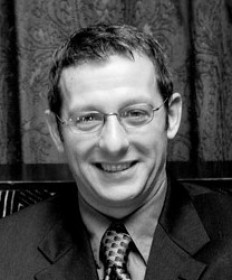
Carnegie Mellon University
3:30 pm to 12:00 am
Event Location: NSH 1305
Bio: Steven Chase is an Assistant Professor jointly appointed in the Center for the Neural Basis of Cognition and the Department of Biomedical Engineering at Carnegie Mellon University. He received his BS in Applied Physics from Caltech in ‘97, his MS in Electrical Engineering from UC Berkeley in ‘99, and his PhD in Biomedical Engineering from Johns Hopkins in ‘06. He recently completed his post-doctoral training under the joint mentorship of Dr. Robert Kass (Carnegie Mellon, Statistics) and Dr. Andrew Schwartz (University of Pittsburgh, Neurobiology), where he used brain-computer interfaces to study adaptation and plasticity in the primary motor cortex. His research probes the coding and flow of information in neural populations.
Abstract: Brain-computer interfaces map the activity of dozens to hundreds of neurons to the control of a device, like a cursor on a computer screen or a robotic arm. By creating a direct link between brain and machine, they hold promise as a breakthrough technology for alleviating paralysis due to stroke, disease, or injury. Although it is well known that the brain can change as subjects learn, most approaches to the design of these devices treat the system as static: parameters are assumed to be fixed, and results from off-line analyses are assumed to translate to on-line control. In this talk, I will focus on our efforts to understand the cognitive factors involved in neural prosthetic control. In particular, I will discuss our experiments probing how subjects adaptively shape their neural activity to better control a prosthetic device, and I will demonstrate an algorithm that shows inferior performance when used to infer arm movements off-line, yet which provides superior on-line control compared to state-of-the-art decoding approaches.
